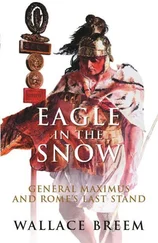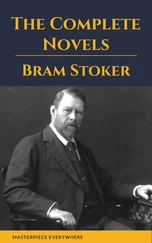“You will not be executed,” I said. “But you are convicted of treason and deprived of Roman citizenship by order of the Vicarius. Your status is now that of slaves and as slaves you will be treated. Those of centurion rank will go to the lead mines at Isca Silurium where you will work for Rome till you die. As for the rest—since you have a taste for fighting your own kind, you will have a chance to gratify it further. You will go to the gladiatorial school at Calleva and afterwards be matched against each other in the ring. You may, if you are lucky, survive five years.”
Before they were taken away I spoke to their leader.
“Why did you do it, Julian?” I said. “In the name of Mithras, why?”
“Your emperor killed my father,” he said, in an empty voice.
“But you—? A Roman officer.”
“I was,” he said, and he tried to smile.
“But why? Why?”
“If you do not understand,” he said, “then I cannot tell you.”
They took him away and I was left alone in that empty room with its memories of my father and my boyhood memories of Julian. I remembered the quarrels we had had and the fights; I remembered the things that we had enjoyed together; days in the hot sun, learning to drive a chariot; other days spent in hunting and fishing, and the long evenings in Gaul spent in talking and playing draughts, and the fine plans we had made and the dreams that we had dreamed together. I remembered it all with a pain that was indescribable, and a sense of anguish that could not be extinguished. And I wept.
I went back to Eburacum and I returned to my accounts. I worked hard so that I never had time to think except in the long, lonely nights when I could not sleep. But I never went to the Games and those who did never spoke about them in my presence.
Three months later I was sent on leave and went to Corinium, which I did not know. I went to the officers’ club, and I drank, and I hunted a little, for they were much troubled by wolves that autumn. Then I met a girl with dark hair, whose name was Aelia, and I married her. For a wedding gift I gave her some gold ear-drops that had belonged to my mother, and she gave me a signet ring with the likeness of Mercury stamped on it. She was a christian, though more tolerant than most.
It was there I received news that I had been posted to the Wall, to a place called Borcovicum of which I had never heard. It was at the end of the world, or so it seemed to us. A harsh country of heather and rock; bleak and terrible in winter, yet austerely beautiful in summer; a vast lonely land that was pitiless in its climate to both men and animals. Step out of earshot of the camp and you would hear nothing save the forlorn cry of the curlew and feel nothing but the bite of the everlasting wind.
My fort had some importance. It stood at the junction of several roads and guarded the track that led north into tribal territory. My auxiliaries were the First Cohort of Tungrians, originally from north-east Gaul; a mixed crowd of Iberians, Parthians, Brigantes and Goths, divided by centuries into tribal classes. Only a single century were Tungrians now, but I found their inscriptions all over the camp. There was one, I remember, on the wall of my quarters. It said, “May I do the right thing”, and I used to look at it every day and wonder what that first commandant had been like and what particular need had driven him to carve just those particular words in that particular place.
My adjutant, Vitalius, was a man of about thirty, anxious faced and solemn. Gaius, my second-in-command, was older. He was a Sarmatian from beyond the Danubius, and from his bitter manner, I think, had hoped for the command for himself. My chief centurion, Saturninus, formerly of the Second Augusta, was a man of great calm, few words, and immense experience. It was a long while before I gained his respect.
The mile castles and signal towers along the frontier were manned by militia—the Arcani we called them—who were recruited from local tribesmen from either side of the Wall. The frontier then was very quiet; and there was little to do except work; but I was happy enough. Aelia did not like the place for there were few women and she was lonely, but she never complained. She saw little of me during the day except at meals, but at night we were happy, and we would lie awake and listen to the drunks singing in the wine shop in the settlement outside, and smell the goats that grazed under the walls by the west gate if the wind was in the wrong direction.
Sometimes I used to ride over to a neighbouring fort, Vindolanda, and play draughts with Quintus Veronius, its praefectus, though he got angry when I called him that. “I am a tribune,” he would say haughtily, “even though I do command a rabble of auxiliaries.” He was my own age, always rode a black horse with white feet and was the best cavalry officer I ever met. He had been posted here from the Tenth Gemina in Pannonia following a scandal over some girl, and when he was drunk he would talk excitedly of a troop of Dacian horse he had once commanded and who, he would swear, were the best cavalry in the world. But he never spoke of the girl. His family came from Hispania and he missed the sun and was always hoping for a transfer there. But though he wrote numerous letters to influential relatives nothing ever came of it; and I was selfishly glad.
Quintus took a great interest in our catapults, which surprised me, for cavalrymen usually thought of little but swords and charges.
“I was on the Saxon Shore under my countryman, Nectaridus,” he explained. “He is a great fighter.”
“Did you enjoy it?”
He shrugged. “It was so cold standing there on those great flat-roofed towers at Lemanis. The wind howled in your face and your eyes ached as you stared out into the darkness. The Saxons used to slip in quietly if they could, sails lowered, on the midnight tide. If you spotted them you hit them with the ballistae until their ships broke up. Then you killed the survivors with arrows while they struggled in the surf.”
“Good shooting,” I said. I was impressed.
“That was Nectaridus. He insisted that we must never fight dry Saxons: we must always kill them while they are still wet.”
“Why did you leave?”
He said, casually, “I wanted command of the Ala Petriana, but I was turned down. Then, oh—I got drunk and did something stupid.” He looked at me with a smile. “So I was sent here.”
I said, “It is a good place if you like fighting.”
“It is also a good place in which to be forgotten. I was always cold on the Saxon Shore, but I would return to-morrow if they would let me.”
I said, “We must go hunting together some time.”
He cheered up then and said, “That would be good. It is lonely here, and I am somewhat tired of the company of slave girls who speak bad Latin.”
I laughed. “Come to Borcovicum and meet Aelia. She is a great talker.”
He said, “I met her once when I was out riding, I think. You—you are very lucky.”
“Yes, I think I am.”
He said, suddenly, “Maximus, why are you here?”
For a moment I did not answer. Then I said, quietly, “One posting is much like another. I hope I shall not be here always.”
It was then that he changed the subject.
When Aelia came back from the birth of Saturninus’ firstborn she was very quiet, after the initial joy women show on these occasions. I took her hand and said, gently, “You are not to worry. There is plenty of time yet. We shall have a son. You pray to your God and I will pray to mine. That way we shall have two chances of favour instead of one.”
She laughed, momentarily, and then her face changed. “Perhaps it is a punishment for my sins.” She was very serious now, and I was worried.
Читать дальше












